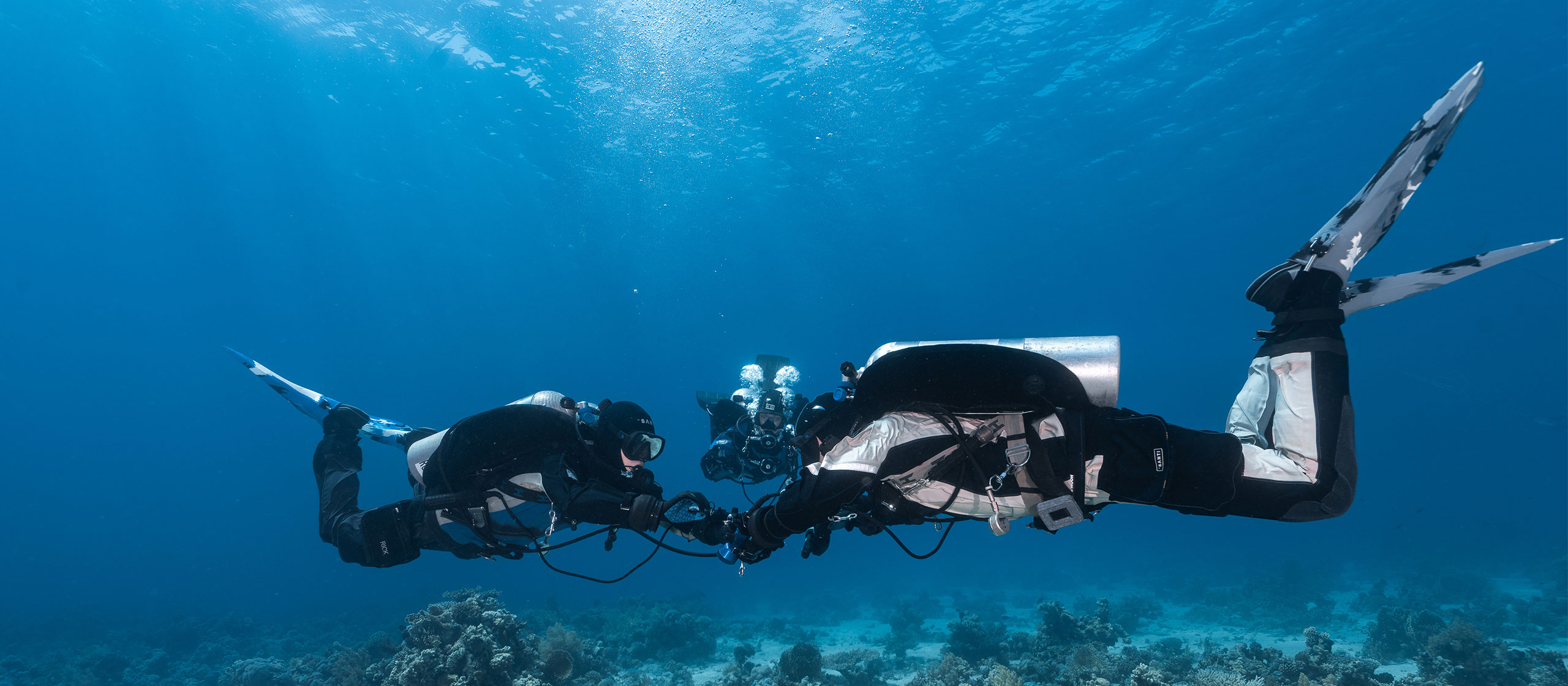Why is this diving course so difficult?
Hidden factors that might affect your performance
Imagine going to Mexico for 16 days of training. For 14 days everything goes as planned – you do two courses, you dive in beautiful places and you are progressing at the speed of light. You are the happiest person in the world. Then comes day 15 and you cannot believe what is going on – the configuration that you have been using for the last few days suddenly seems so odd you have big troubles putting the tanks on, your ears get blocked, you lose a piece of equipment (twice!) while descending, you cannot concentrate and instead of a great dive you end up having a 2-hour session of skill practice on 5 metres of water. Well, at least you do not waste your time completely but you go out of the water feeling like a complete loser and want to cry out of frustration. On top of that you know you have only one day left and now you are not even sure you can dive at all…
As weird as it seems, it is actually a true story. I know it because it happened to me. Luckily on the last day the equipment was user friendly again, ears stopped behaving badly, the dive was superb and skills suddenly appeared much easier than the day before. I could not believe that I was the same person who 24 hours earlier was fighting with the tanks and got more and more frustrated with every single minute. The feeling of „wow, actually I can do it” was great and this is what I needed on the last day to boost my confidence. However, I could not stop wondering what actually happened the day before?
After discussing it with my instructor and analysing the situation I realised I had learnt as much, if not more, from day 15 than from any other day on the course. It was actually a blessing in disguise and a great lesson that I am forever grateful for, even though I had to swallow my pride and confess I had failed miserably. However, if it had not happened, I would never have realised how many factors contribute to the overall performance and how powerful they can be. I was tired, I had ear problems and there was a pressure of time. Let’s look at some of these factors to understand that learning how to dive might become more difficult because of something we might not even be aware of.
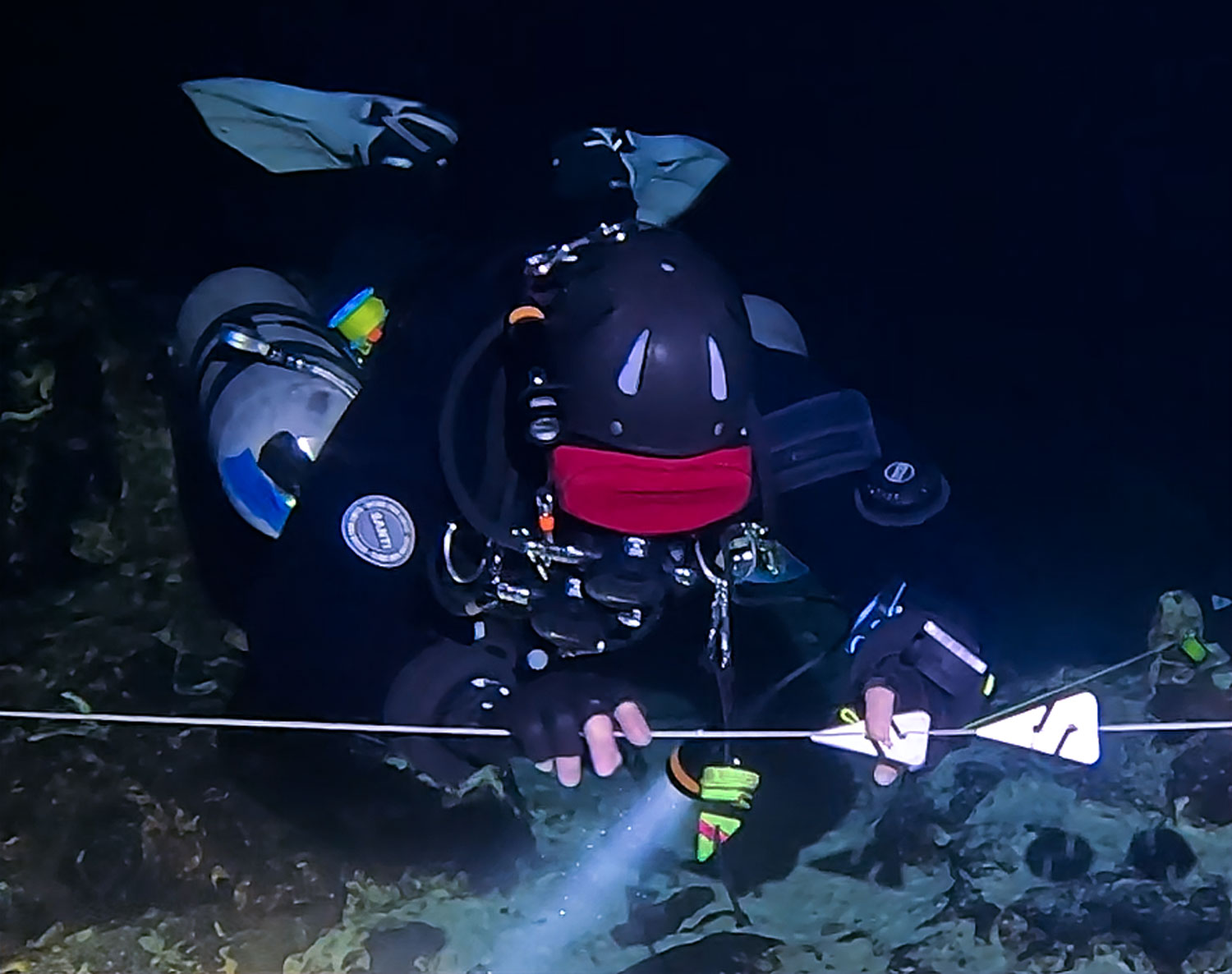
Credit: diverbydesign.com
Tiredness
This is something a lot of people disregard, until they realise how tired they are after a few days of taking part in a course. Let’s face it – training is hard work! You are out all day doing things you have probably never done before. You might be using a configuration that is quite uncomfortable or heavy and which you do not know very well yet. The days are long, it is too hot (or too cold), you are not eating properly and sometimes you are not having enough sleep. It all accumulates and every day you find it more and more difficult to concentrate. After a few days you suddenly realise you are exhausted and learning starts getting harder and harder. Tiredness affects not only your body, but also your mind and your attitude, that is why for me it is one of the main factors.
If you start feeling that everything is becoming difficult, heavy and you cannot concentrate, maybe it is time to have a day off as it may be more beneficial than trying to push it. Your brain needs time to rest and sort out all the new information. Very often after a one day break students go back to the water and realise they can do skills much easier than before.
Learning process
We often forget that learning is a process which takes time. After learning new things and practising skills, your brain needs a rest, otherwise it will not be able to sort things out. There is no shortcut – you need time for practising skills, diving, getting better and then resting. Unfortunately in our “fast” world people expect immediate results. We all have met divers who want to be great after 3 days of OWD course without taking into account that they are doing a basic training, not an advanced decompression course.
Because learning takes time, speeding it up makes no sense. There are days we learn quickly, then the process flattens out and we may take a step back – and it is all absolutely normal. When divers do not take it into account and expect fast results all the time, that’s when problems start. And it happens at all levels. Technical divers who want to train in a different configuration without giving themselves enough time to get used to it are asking for as much trouble as an OWD diver who wants to start the AOWD course immediately after a 2-year break.
Remember that progressing requires learning new movements and techniques, implementing new knowledge or even unlearning things (for example when you dive with CCR regulating your buoyancy with your lungs does not work). That means you have a lot of new things to think about and task loading takes away your brain power which you need to execute a dive. Overloading may lead to risky behaviours or mistakes that might be potentially dangerous. That is why it is important to acknowledge what you know and what you don’t and take it easy – give yourself time to learn properly before going to the next level.
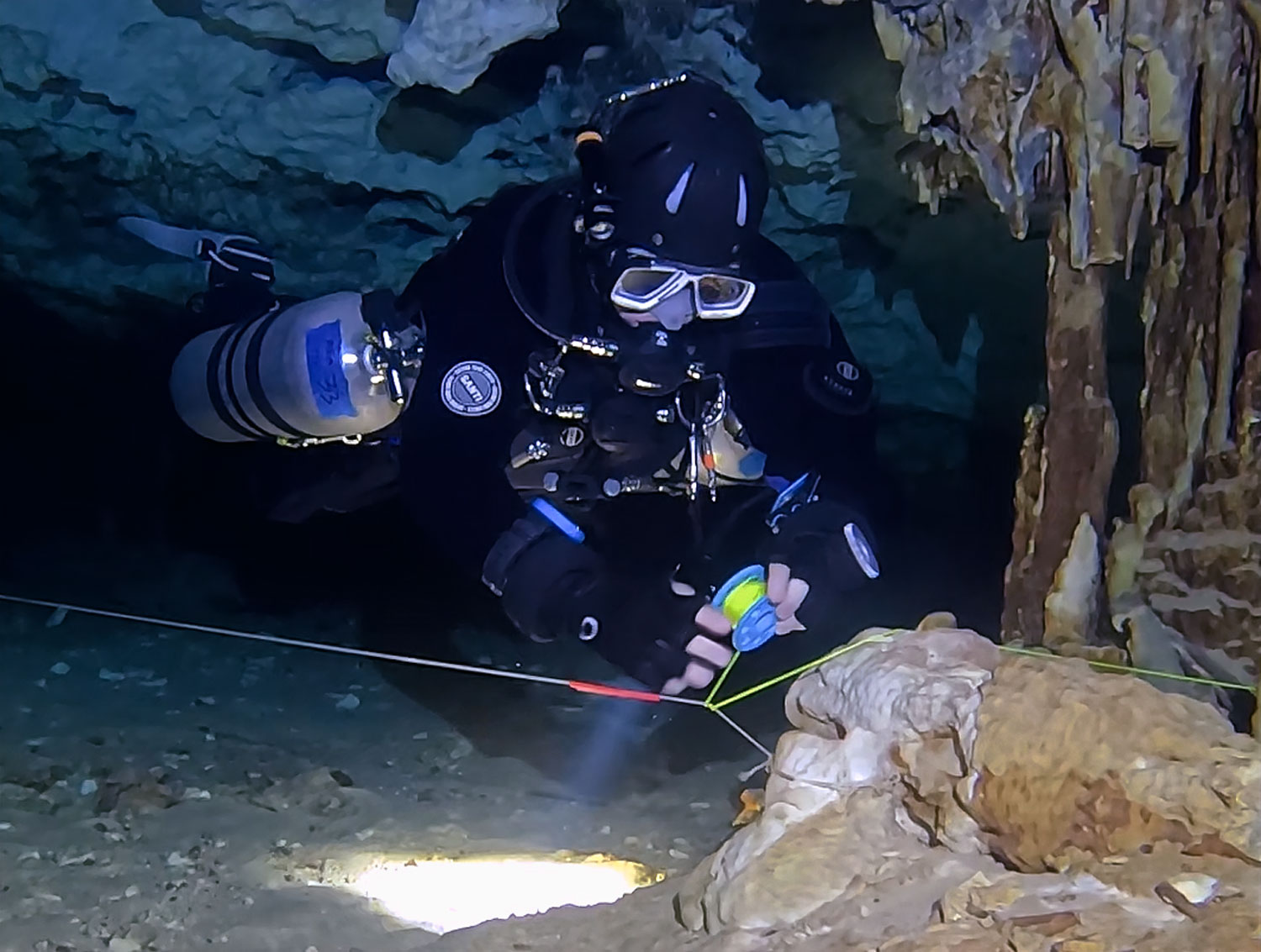
Credit: diverbydesign.com
Pressure
When divers hear the word “pressure”, they normally think of 1 bar per 10 metres. However, during training there is also a different kind of pressure – to finish the course. What would you do if you only had one week of holiday, decided to do a diving course and on the third day you discovered that your ears were not equalising properly? The common sense says you should have a few days off but it is your only opportunity to get a certification and go on a liveaboard next month with a local diving club…
It is very easy to say that this diver should not go to the water, but nobody likes losing what they have already invested, which in this case is time and money. As most of us have a big aversion to loss, I know at least a few divers who would go to the water and see if they can descend instead of having a dry day. I do understand it, but we have to remember that health problems, for example ears that do not equalise properly, do not let you concentrate on learning process and tasks. As a result a diver may end up completely focused on his ears instead of paying attention to what is going on around him. It is not exactly what I would call the best attitude to learning and that’s when things can go wrong.
Your emotions and attitude
Your emotions and attitude are incredibly important when it comes to learning. Basically the key factor that determines if somebody will learn or not is their motivation. Everybody has heard about people who learnt a language by themselves so it proves the point that if you want to learn, you will find a way. One thing to remember, though, is that for sure you will fail and make mistakes but you need know that they are the core of learning – you have to make mistakes to learn from them. That is why you should have a positive attitude to errors, as they help you progress. However, your instructor and other participants must have exactly the same opinion. This is the reason why it is so important to choose an instructor who understands it and creates a supportive environment.
Unfortunately it is quite easy to destroy a nice learning experience, particularly if any of the other factors mentioned above is present. Imagine it is the sixth day of training in a row, you are getting tired and start getting a bit cold and suddenly another student (or instructor!) snaps at you because you are doing something wrong. As much as you try, you just cannot do it properly so your motivation drops and you start feeling pressure from other students, which affects your performance even more. It is getting worse and worse, you make another mistake, you slowly start feeling useless, then you motivation drops even further… and you are in a vicious circle that will take you nowhere. If you are not careful it is not as difficult as it seems to end up there. If it happens, a good idea is to take a break, calm down and not let your emotions affect you so much that you start doubting your future diving career. Remember that it is only a bad moment and there is always another day. As they say, a smooth sea never made a skilled sailor.
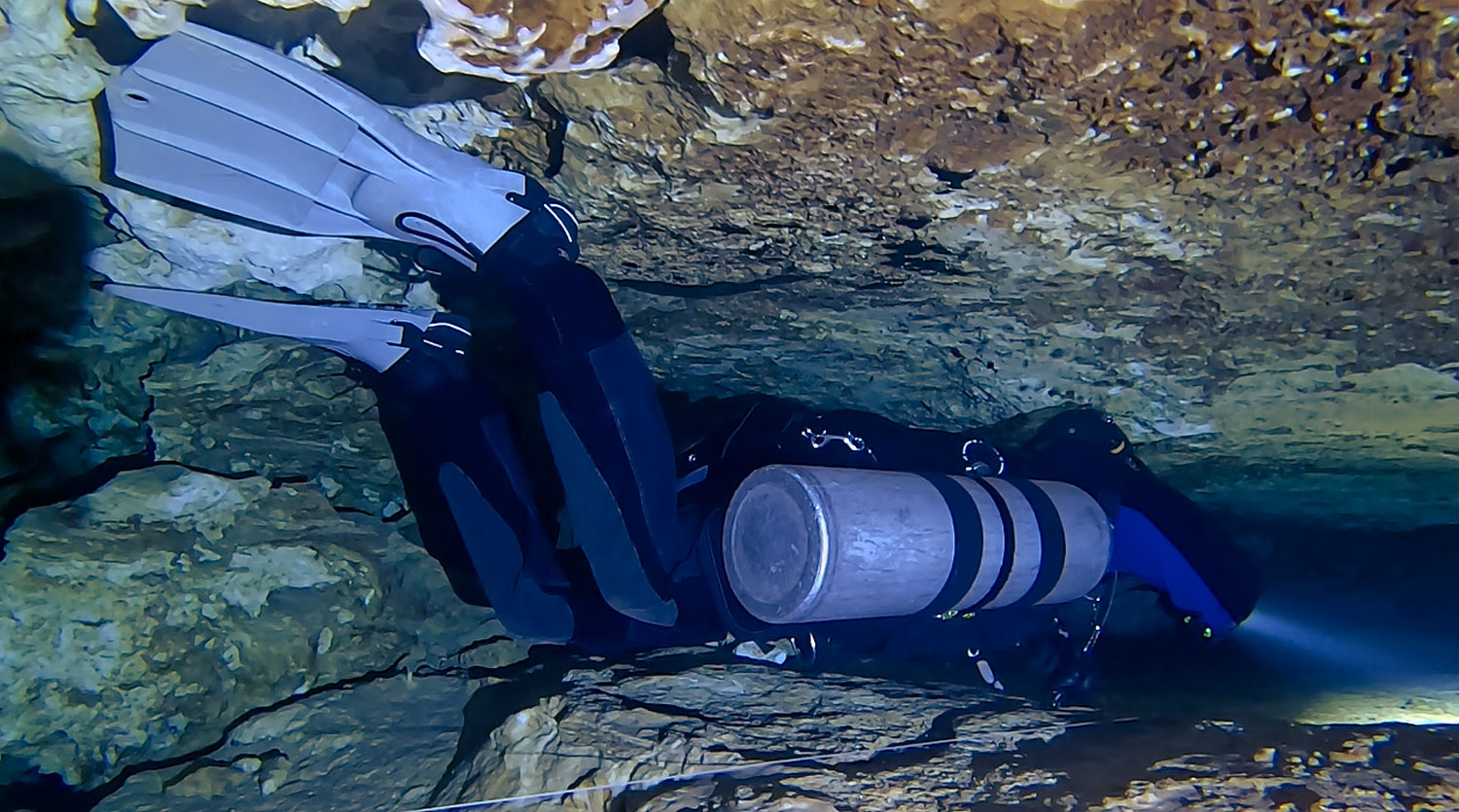
Credit: diverbydesign.com
Here is a note to instructors. Emotions are quite often underrated but in my opinion they are the biggest culprit of people’s failure. We need to be very careful how we treat our students, because we can make somebody a happy diver or destroy their passion. It is sometimes difficult to deal with a student who is so upset or angry that they stop listening but it is the attitude of the instructor that counts at this moment. If you show understanding and support, the diver might calm down and continue training or go back to the water the next day with a different mindset. On the other hand, getting nervous or making nasty comments will kill the diver’s self-esteem. Remember that developing divers’ confidence is as important as teaching them diving skills.
Comparing yourself to others
If you admire a diver or an instructor and you want to be as good as them, that is great. However it can be frustrating when you start comparing yourself with somebody who has much more experience. When you see your instructor effortlessly doing something that you still struggle with, you might feel incompetent. Remember, though, that comparing yourself with other people is a big trap which is very dangerous for your self-esteem. It also makes no sense, because very often you do not know the facts. The only person you should compare with is yourself from a week ago.
If you want to know what it looks like to be a good diver, talk openly to your instructor or somebody you admire and you will be surprised how many stories of „bad days” or „bad dives” they have. What we very often see is the final result – perfect buoyancy, great trim, brilliant technique – but we do not know how many times they failed, got frustrated or doubted themselves. Maybe one day they went out of the water feeling down but they came back the next day and tried again. When you admire instructors or excellent divers, always take into account the fact that they are at this level not because they were born like that, but because they never gave up, worked hard and failed so many times they cannot count. They learnt from their mistakes and went on, but some time ago they were exactly at the same place as you are now. The key factor to success is hard work and perseverance.
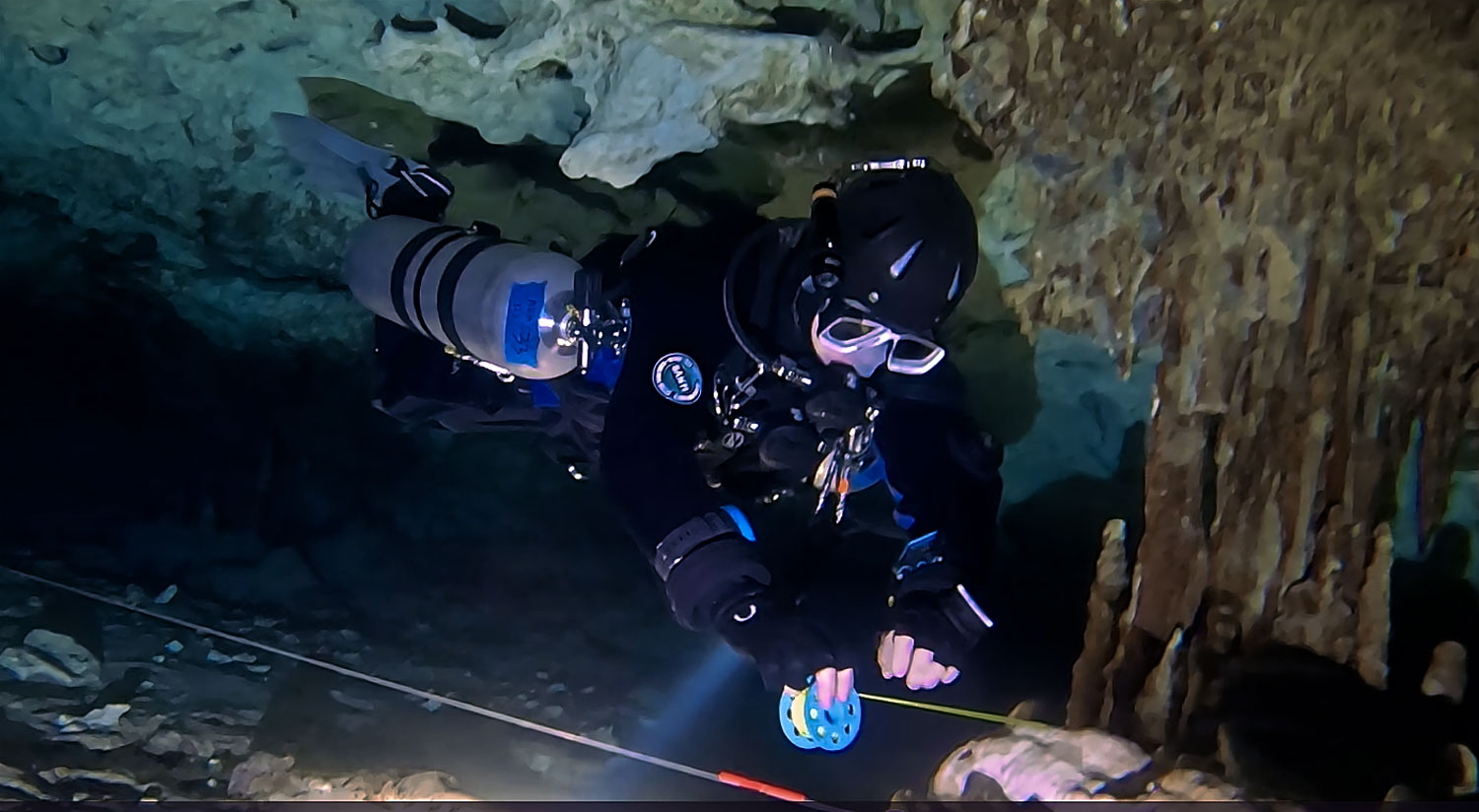
Credit: diverbydesign.com
Diving is a great experience but – as any other activity – it can be hard and frustrating at times. We have to acknowledge, though, that what we achieve gives us happiness. Things that come easy are not so attractive, but the harder it is to get something, the more we value it. Remember about it next time you want to go out of the water because you still have a problem with a skill. You can be angry, you can get upset, you can even go home and cry silently in the corner but do not give up, because the reward is a life full of great underwater adventures.
On a personal note I would like to thank my instructor for day 15 in Mexico – it was one of the most valuable lessons in my diving career.
Reference:
- Gareth Lock „Under Pressure”
- David Beaty „The Naked Pilot. The Human Factor in Aircraft Accidents”
- Johann Hari „Stolen Focus. Why You Can’t Pay Attention – and How To Think Deeply Again ”
- Daniel Coyle „The Talent Code”
- Mihaly Csikszentmihalyi „Flow: The Psychology of Optimal Experience”
- Fit to Dive Blog: www.fittodive.org
About the author
Agnieszka Kostera-Kosterzewska is a Polish diving instructor who lives in Gozo, Malta and works in a diving centre. She is also a translator working for PADI and DAN Europe.


